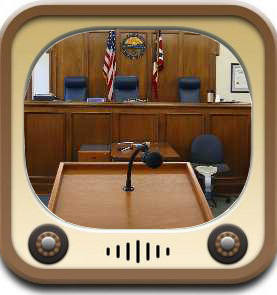September 10, 2025
Browse by Subject
- Defamation (588)
- Copyright (511)
- Legal Threat (507)
- Free Speech (411)
- Blogs (315)
- Section 230 (309)
- Anonymity (301)
- Social Media (297)
- Citizen Journalism (286)
- Newsgathering (286)
- Fair Use (280)
- Criminal (279)
- Journalism (266)
- Access to Gov't Information (242)
- Third-Party Content (239)
- Censorship (230)
- Twitter (229)
- Privacy (213)
- CMLP (211)
- Trademark (189)
- DMCA (162)
- Shield Laws (149)
- Access to Courts (148)
- Prior Restraints (120)
- FOIA (107)
- SLAPP (105)
- Cyberbullying (89)
- Elections and Politics (88)
- Legal Guide (84)
- Recording Others (83)
- User Comments or Submissions (82)
- Terms and Conditions (80)
- Publication of Private Facts (80)
- Right of Publicity (79)
- Subpoenas (78)
- Advertising (77)
- Consumer Ratings and Reviews (59)
- Intrusion (54)
- False Light (54)
- Student Speech (54)
- Gripe Sites (51)
- Congress (49)
- Hot News Misappropriation (47)
- Resources and Tools (45)
- Open Meetings (43)
- Children (42)
- Linking (41)
- Computer Fraud and Abuse Act (41)
- Obscenity (36)
- Access to Places (35)
- Business Torts (33)
- Identity (33)
- Aggregation (33)
- Trade Secrets (30)
- Trade Libel (25)
- Personal Jurisdiction (24)
- Licensing (24)
- Business Formation (23)
- Taxes (22)
- Sanctions (21)
- Employee Blogs (20)
- Domain Names (19)
- Real Estate (17)
- Retractions and Corrections (15)
- Credentials (15)
- DMLP (13)
- Cyberstalking (13)
- Reviews (11)
- Insurance (11)
- Hate Speech (11)
- Misappropriation (11)
- Establishment Clause (10)
- Government Speech (9)
- Website Design (7)
- Statute of Limitations (4)
- Science (3)
- Patent (2)
Recent Blog Posts
-
11 years 2 months ago
-
11 years 3 months ago
-
11 years 4 months ago
-
11 years 4 months ago
-
11 years 4 months ago
-
11 years 5 months ago
-
11 years 5 months ago
-
11 years 5 months ago
We are looking for contributing authors with expertise in media law, intellectual property, First Amendment, and other related fields to join us as guest bloggers. If you are interested, please contact us for more details.


 I have a pet theory that perfect informational transparency would make the world a more civil place. Sure, it might be embarrassing to reveal our personal secrets and foibles to the world, but the tradeoff would be that you'd know when someone was talking out of both sides of their mouth. In such a world, maybe that senator wouldn't be quite so holier-than-thou when the public knows about
I have a pet theory that perfect informational transparency would make the world a more civil place. Sure, it might be embarrassing to reveal our personal secrets and foibles to the world, but the tradeoff would be that you'd know when someone was talking out of both sides of their mouth. In such a world, maybe that senator wouldn't be quite so holier-than-thou when the public knows about  It’s been a long time since a printed newspaper delivered to your doorstep or purchased on your way to work was
It’s been a long time since a printed newspaper delivered to your doorstep or purchased on your way to work was  There are a couple of laws in California that the U.S. Supreme Court should consider before it announces tomorrow
There are a couple of laws in California that the U.S. Supreme Court should consider before it announces tomorrow  The Reporters Committee for Freedom of the Press
The Reporters Committee for Freedom of the Press 
 In recent years, the American public seems to have fallen under the impression that providers and regulators of airline travel have extra-legal powers. These fictional powers typically mean that passengers can be
In recent years, the American public seems to have fallen under the impression that providers and regulators of airline travel have extra-legal powers. These fictional powers typically mean that passengers can be  Before the Thanksgiving holiday, Microsoft
Before the Thanksgiving holiday, Microsoft 